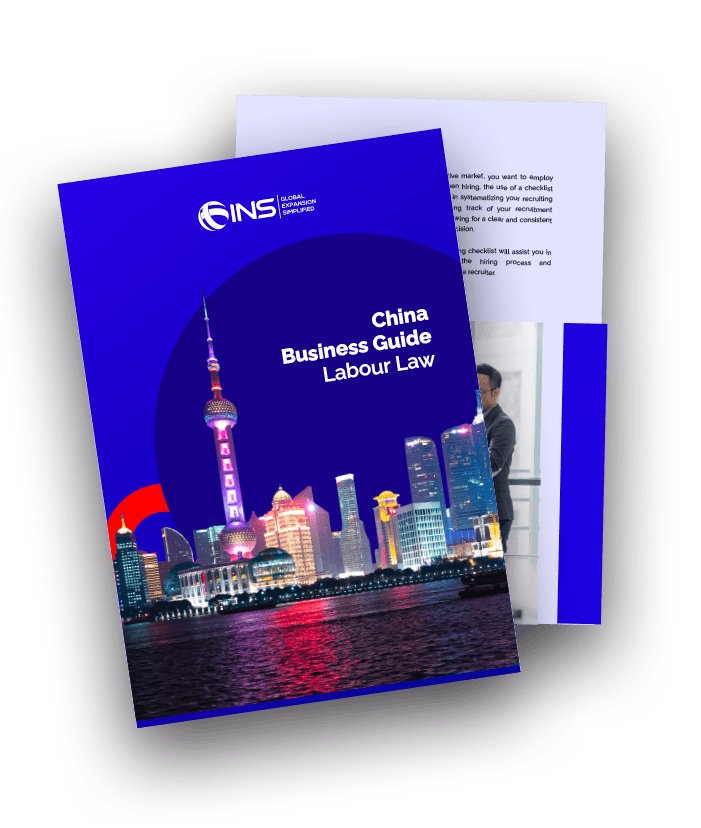Marriage Leave
Foreign companies are not always required by local governments to offer marriage leave, though most companies choose to. If a foreign company chooses to offer marriage leave as a benefit to employees, observing the Chinese marriage leave requirements of domestic companies is a good starting point. Most regions offer 10 days for marriage leave. The law in all provinces no longer allows for longer marriage leave for so-called ‘late marriages’.

Tired of scrolling? Download a PDF version for easier offline reading and sharing with coworkers
In a hurry? Save this article as a PDF
Tired of scrolling? Download a PDF version for easier offline reading and sharing with coworkers.
Fill up the form below 👇🏼
Maternity Leave
As an employer, understanding maternity leave in China is not always a simple task. While labor contract rules are set at the national level, cities are given administrative autonomy and room to interpret national rules. Thus, calculating the length of maternity leave in one city could be quite different than in another city. Additionally, within one region, requirements may change quickly. This is because, at the local level, authorities may move at their own (and possibly unpredictable) pace in implementing national rules. The State Council (in the “Provisions on Female Labor Protection under Special Circumstances”) grants maternity leave to pregnant female employees for a standard duration of 14 weeks (no longer 90 days, under the previous legislation).
This 14 week (98 day) period includes all rest days and statutory holidays that occur during the period, unlike paid annual leave which excludes them. Recent revisions to these rules can be understood within the context of a shifting family planning strategy at the national level.
As the Chinese government is pivoting from a policy strategy of discouraging couples from having children to one of encouragement, authorities are adjusting labor contract laws to incentivize couples to have kids. For example, fathers are now widely entitled to paternity leave. Additionally, marriage and maternity leave laws no longer provide incentives for having a late marriage or pregnancy. More famously, the one Child-policy is now the two-Child policy.
Check Our China Labor Law Guide
Learn how the Chinese law is applied in all aspects and situations, from an employer and employee perspective

Legislation Implementation and What it Means for Employers
The current maternity leave legislation (providing a standard 14 weeks to female employees) was passed in 2016. While it is likely to have been implemented in most regions, there may be some jurisdictions in which it is not fully implemented and, thus, companies may have to adhere to the region’s previous rules. If this is the case, it is best to check with local authorities to see if the legislation has been implemented.
Maternity Leave Extensions
Maternity leave may be extended by 15 days in the event of special circumstances. The employee may submit a request to the employer for an extension to her maternity leave and the employer is not necessarily entitled to say no. If the employee is found by local authorities to have had good justification for the extension but the employer denied the request, the employer may face penalties. Medical reasons would certainly be a good justification.
Birth to Multiple Children
If the employee gives birth to more than one child at a time, she is entitled to an additional 15 days per each additional infant.

Prenatal Checkup
The mother is entitled to paid leave for prenatal checkups, which occur with increasing frequency from the 12th week of pregnancy.
Abortion and Miscarriage
- Abortion before 4 months pregnant: The employee is entitled to at least 15 days paid leave.
- Abortion after 4 months pregnant or miscarriage: Employee is entitled to at least 42 days employee leave.
Payment During Maternity Leave
The employee is compensated with an allowance rather than her normal salary during maternity leave.
Employees with Maternity Insurance
If the employee has purchased maternity insurance from the Social Security Bureau, employers may not need to pay the employee’s full compensation during maternity leave. The social security bureau may pay all or most of the employee’s allowance. The social security bureau will determine the allowance based on their own rules, but it will be based on the average monthly salary of the all employees of the company over the previous 12 months as well as the local average wage.
The employer may still be required to contribute to the employee’s salary, depending on the rules of the local social welfare administration. In Beijing and Shanghai, all maternity leave compensation that exceeds the local average monthly salary must be paid by the employer. In Shanghai and Beijing, the maximum allowance standard is three times the average local salary.
Employees without Maternity Insurance
If the employee going on maternity leave does not participate in maternity insurance, the employer must pay the employee’s compensation during maternity leave to be calculated based on her average monthly salary of the previous 12 months.
Paternity Leave
Male employees requesting paternity leave are, in most regions, entitled to 15 days. However, this may vary by location. The following are the cities that do not follow the 15-day norm:
- 7 days (of paternity leave): Tianjin, Shandong
- 10 days: Shanghai, Anhui
- 20 days: Sichuan, Hunan
- 25 days: Ningxia, Guangxi, Inner Mongolia
- 30 days: Yunnan, Gansu
There are nuances to paternity leave requirements that can vary by location. For instance, the city of Shenzhen requires a minimum 15 days of paternity leave if the mother is at least 23 years of age. Otherwise, the employee’s entitlement to paternity leave is somewhat ambiguous.
Termination
Terminating the contract of a pregnant employee at any point in time is illegal. It is also illegal to terminate an employee during her breastfeeding period. The breastfeeding period is defined as through the first year of the baby’s life.
Contract Ending During Pregnancy
If an employee’s contract ends during her pregnancy, the contract must be extended through her breastfeeding period.
Regional Variation
As mentioned above, regional variation in maternity leave policy implementation makes the issue complex and difficult to prescribe a one-size-fits all path for companies. For example, while some provinces have yet to implement the 14 week minimum maternity leave, Beijing has already required a 128 day minimum maternity leave. As such, it is wise to pay close attention to local rules and be prepared for change. When the national government amends a law, it does not immediately go into effect at the local level. Instead, local authorities then are given time to amend their local laws to be in compliance with national laws.
Chinese social welfare legislation, in general, gives considerable autonomy to local governments to interpret and implement national rules. Thus, if an employer is operating offices in multiple cities, it is wise to understand maternity leave requirements in each location independently of one another.Need Assistance?
If you would like to hire an employee in China, INS helps foreign companies to meet the Chinese labor law standards via its HR solutions. Outsourcing specific HR activities such as recruitment, employment of an employee under a local contract or payroll and tax compliance; has become a common practice between foreign companies that prefer to focus on their core activity, rather than resolving administrative tasks of this kind.
Contact us here and one of our professional consultants will personally reply your questions regarding your business in China.

SHARE